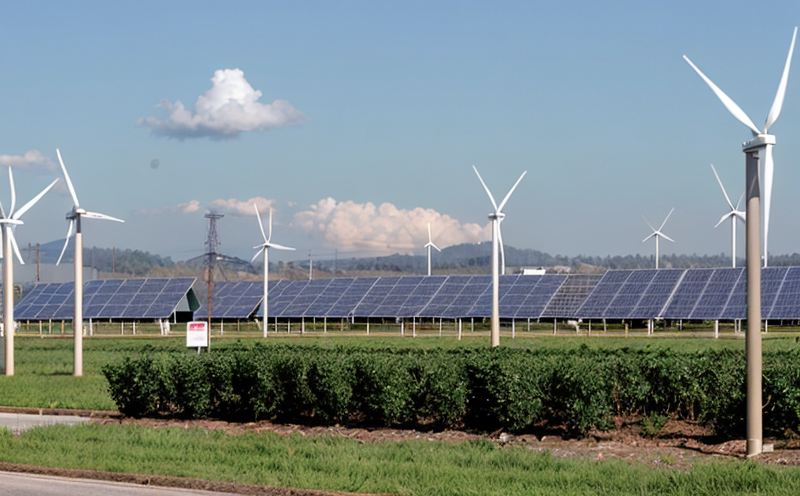IEEE 2030 Interoperability Testing of Smart Grid Devices
The IEEE P2030.7 committee has established IEEE Standard 2030-2017, which defines the requirements for interoperable smart grid devices. This standard ensures that various components within a smart grid can communicate and operate seamlessly, enhancing reliability and efficiency in energy distribution.
The IEEE P2030.7 committee’s efforts focus on promoting robust communication protocols between different devices such as meters, controllers, and other smart grid equipment. By adhering to these standards, manufacturers ensure that their products are compatible with existing systems and future technologies. This interoperability is crucial for the successful implementation of modern smart grids.
Our service involves rigorous testing aimed at verifying compliance with IEEE Standard 2030-2017. We simulate real-world conditions under which these devices will operate, ensuring that they meet all specified criteria outlined in the standard. Our team uses advanced equipment and methodologies to perform comprehensive evaluations, providing clients with detailed reports on device performance.
For example, we test individual components like electricity meters or communication hubs for their ability to exchange data accurately while maintaining security standards. We also evaluate entire systems composed of multiple interconnected devices to ensure they function cohesively according to the interoperability principles set forth by IEEE P2030.7.
In addition to technical aspects, our service includes assistance with interpreting results and offering recommendations for improvements based on findings from testing sessions conducted using current best practices aligned with international standards like ISO 9001 for quality management systems or IEC 62443-4-2 for cybersecurity in power systems.
Industry Applications
- Utility companies looking to integrate new technologies into their existing infrastructure
- Manufacturers seeking certification for compliance with IEEE standards
- R&D teams aiming to improve product design and functionality before market launch
| Component | Test Criteria | Expected Outcome |
|---|---|---|
| Meter Accuracy | Measuring voltage, current, power factor, and energy consumption accurately. | Ensuring precise measurement of electricity usage. |
| Data Transmission Stability | Evaluating the reliability of data transfer between devices over various networks. | Achieving consistent and secure communication across the smart grid network. |
| Environmental Factors Tested | Impact on Device Performance |
|---|---|
| Temperature Variations | Can affect circuit stability and component reliability. |
| Humidity Levels | Might influence electronic circuits’ functionality. |
Why Choose This Test
Choosing IEEE 2030 Interoperability Testing is essential for several reasons. Firstly, it ensures that your smart grid devices can communicate effectively with other components within the system. Secondly, compliance with this standard enhances trust among stakeholders involved in energy distribution processes. Lastly, participating in such testing demonstrates commitment to industry best practices and upholds high standards of quality.
Our comprehensive approach guarantees not only adherence to IEEE P2030.7 but also fosters continuous improvement through regular updates based on evolving technological advancements. This ensures that your products remain relevant and competitive in the rapidly changing energy sector.
Environmental and Sustainability Contributions
By ensuring interoperability among smart grid devices, our testing contributes significantly to environmental sustainability by promoting efficient use of resources. Enhanced communication between components leads to better management of electricity supplies, reducing waste and optimizing energy consumption.
The robustness provided through rigorous testing helps prevent failures that could lead to power outages or increased emissions from backup generators during disruptions. Additionally, secure data exchange ensures proper functioning of critical systems even under challenging conditions like extreme weather events.





